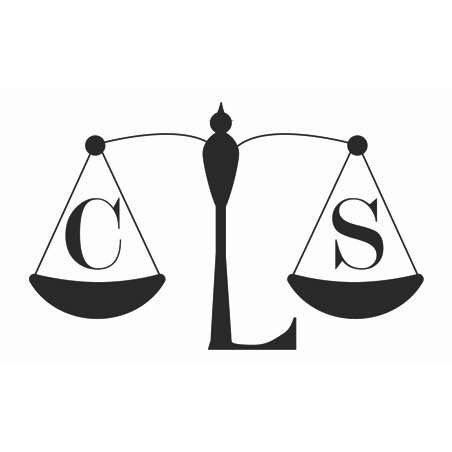Best Water Law Lawyers in Yemen
Share your needs with us, get contacted by law firms.
Free. Takes 2 min.
Or refine your search by selecting a city:
List of the best lawyers in Yemen
About Water Law in Yemen
Water Law in Yemen governs the ownership, use, management, and conservation of water resources throughout the country. Due to Yemen's arid climate, scarce water resources, and high demand from agriculture and urban centers, water management is a critical issue. The key legislation is the Yemeni Water Law, which sets out rules on extraction, distribution, rights, prioritization, and enforcement mechanisms to prevent misuse and resolve disputes. Water Law in Yemen balances traditional water rights, state oversight, and community management, seeking to secure water for current and future generations while addressing environmental and social needs.
Why You May Need a Lawyer
Legal advice in Water Law may be required in several situations. Landowners, farmers, and business owners often need guidance on water extraction permits, resolving disputes over water rights, and understanding legal restrictions on drilling wells or constructing irrigation systems. Communities sometimes face disagreements over shared water sources, such as springs, wells, or qanats. When government or private projects affect water flows or quality, affected parties may seek legal representation to challenge or negotiate compensation. Lawyers also assist when negotiating with government bodies, drafting water-related contracts, or handling environmental compliance issues arising from water pollution or overuse.
Local Laws Overview
Water management in Yemen is governed by several key laws and administrative systems. The Yemeni Water Law establishes a permit system for groundwater extraction and surface water use, requiring users to register wells and comply with quotas. The law prioritizes drinking water for domestic and smallholder agricultural use, especially in water-scarce areas. It includes measures against water pollution and mandates the protection of water sources from contamination. Local customary laws also play a large role, especially in rural and tribal areas, where traditional leaders mediate disputes and enforce unwritten water-sharing practices. Enforcement of formal laws may vary depending on government presence and capacity in different regions.
Frequently Asked Questions
What rights do individuals or communities have to water sources?
Traditional users often have recognized rights to local water sources, but these are subject to formal permitting under national Water Law. Customary rights may be respected alongside state regulations.
Do I need a government permit to dig a well or draw water from a stream?
Yes, under the national Water Law, permits are generally required for new wells, large withdrawals, or significant changes in usage to help monitor and control water use.
How are disputes over water resources typically resolved?
Disputes may be handled by local authorities, tribal or customary leaders, or through the courts. Formal mediation and negotiation are encouraged before litigation.
What penalties exist for illegal water extraction or pollution?
Penalties can include fines, closure of illegal wells, and orders for compensation or remediation. Persistent offenders may face criminal charges under environmental provisions.
Are there any special laws for agricultural or industrial water use?
Yes, the law sets priorities for water use, with domestic and agricultural needs generally ranking above industrial or commercial uses. Specific permits and regulations may apply.
How are water quality and pollution controlled?
The law prohibits dumping waste or hazardous substances into water sources. Regulatory bodies monitor water quality and can impose penalties for violations.
Can water rights be bought, sold, or inherited?
Water rights are typically tied to land and usage, not owned outright. Customary transfers may occur, but all changes in formal rights must comply with national laws and may require official approval.
What should I do if a development project affects my water supply?
Seek legal advice immediately. You may have the right to compensation, alternative supply, or to challenge the project if it does not comply with environmental or water laws.
Who enforces Water Law in Yemen?
The National Water Resources Authority and regional subsidiaries enforce the law, alongside local councils, courts, and, in some areas, traditional leaders.
Is there government assistance for water management or conflict resolution?
Yes, government agencies, local councils, and some NGOs offer support for improving water management, resolving disputes, and funding sustainable water projects.
Additional Resources
- National Water Resources Authority (NWRA): The primary government body managing water resources and policy in Yemen. - Ministry of Water and Environment: Oversees national water policy, legislation, and enforcement. - Local Water and Sanitation Corporations: Municipal water management entities operating in larger cities. - NGOs such as CARE and Oxfam: Offer water management support and advocacy, often with a focus on rural and disadvantaged communities. - Traditional and local councils: Often have mediation and conflict-resolution roles. - Environmental Protection Authority: Manages compliance with pollution controls and environmental regulations related to water.
Next Steps
If you need legal assistance related to Water Law in Yemen, begin by gathering relevant documents, such as permits, land titles, and communications regarding your case. Identify the specific issue you are facing, whether it is a dispute, compliance question, or permit application. Consult with a qualified lawyer experienced in Water Law and familiar with both statutory and customary local practices. You can approach the National Water Resources Authority or your local water council for information and to clarify available legal aid or dispute resolution mechanisms. If necessary, seek help from NGOs or local organizations dedicated to water rights and resource management.
Lawzana helps you find the best lawyers and law firms in Yemen through a curated and pre-screened list of qualified legal professionals. Our platform offers rankings and detailed profiles of attorneys and law firms, allowing you to compare based on practice areas, including Water Law, experience, and client feedback.
Each profile includes a description of the firm's areas of practice, client reviews, team members and partners, year of establishment, spoken languages, office locations, contact information, social media presence, and any published articles or resources. Most firms on our platform speak English and are experienced in both local and international legal matters.
Get a quote from top-rated law firms in Yemen — quickly, securely, and without unnecessary hassle.
Disclaimer:
The information provided on this page is for general informational purposes only and does not constitute legal advice. While we strive to ensure the accuracy and relevance of the content, legal information may change over time, and interpretations of the law can vary. You should always consult with a qualified legal professional for advice specific to your situation.
We disclaim all liability for actions taken or not taken based on the content of this page. If you believe any information is incorrect or outdated, please contact us, and we will review and update it where appropriate.
Browse water law law firms by city in Yemen
Refine your search by selecting a city.









